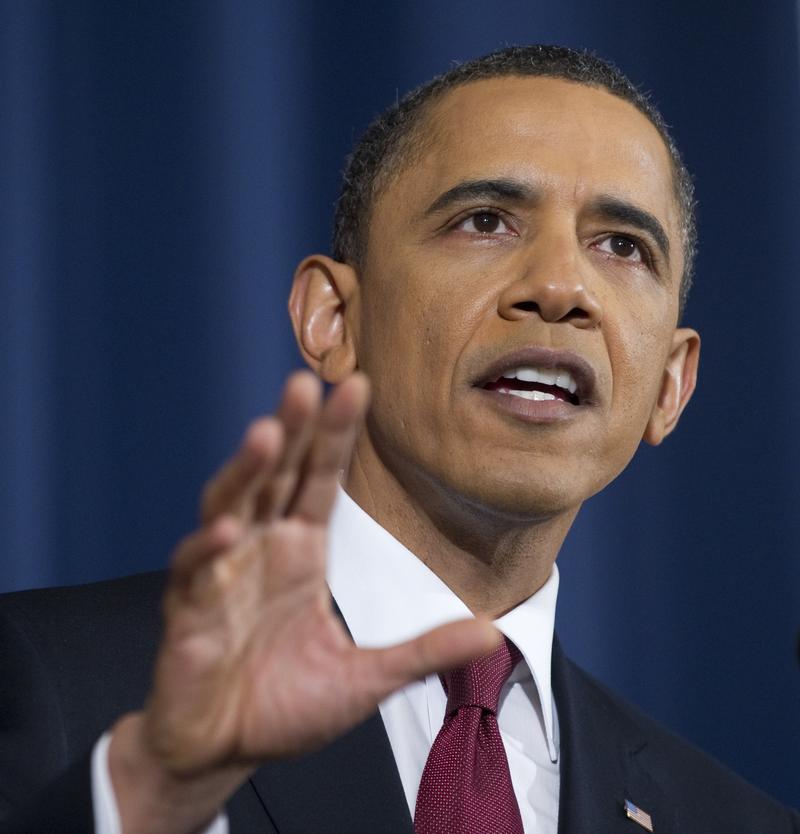
Welcome to Politics Bites, where every afternoon at It's A Free Country, we bring you the unmissable quotes from the morning's political conversations on WNYC. Today on the Brian Lehrer Show, Peter Beinart, senior political writer for The Daily Beast, senior fellow at the New America Foundation, and author of The Icarus Syndrome: A History of American Hubris, talks about President Obama's speech last night on Libya and on what the future of American military intervention might be.
Libya's Surprising Alliances Between Liberals and Neo-Cons
Wars make strange bedfellows and the U.S. intervention in Libya has bonded liberal hawks and neo-conservative hawks.
I think for people like Samantha Power and other liberal hawks American power is the only way to in a circumstance like this to prevent genocide or some mass humanitarian slaughter. They want it in the context of the international coalition.
I think for the neo-conservatives, it's not that the humanitarian issues don't matter at all, but I think for them (at the risk of being a little ungenerous) it's more that the humanitarian issue is a vehicle for the expression of American power, and what's important is the expression of American power as a message to our adversaries.
Does Libya Mark the End of Obama's 'Cool as a Cucumber?' Image?
A lot of Obama's foreign policy speeches and his speeches on Afghanistan I think have been weak because you don't feel like he's that emotionally invested in them. I felt listening to this speech that I was struck by how emotionally invested he seemed in this, and that was for me the most important part of it.
Barack Obama's Take on American Exceptionalism
The president is often criticized by the right for not believing that America has a special mission to do good in the world. Beinart feels that contention is bunk. He says Obama certainly believes in American Exceptionalism, the difference is he believes its America's struggle, not America's fate.
Obama, unlike people like Bolton and Bush and Cheney, understands, and is willing to talk about, the dark side of American history. Those guys only talk about America struggling against evil somewhere else, like the Nazis and Communists. He always refers to the civil rights movement which was a struggle against the evil within us. For him I think the intervention in Libya is part of America's capacity to transcend that tendency--the struggle to be different, not the fact that we are inherently different, but the struggle to prove that we can be different, even though we have the same capacity to do evil or be indifferent to evil as anybody else.
Why Libya, and not Ivory Coast or the Congo?
There's nothing wrong with prudence and acknowledging the possible, Beinart said. Success in military intervention has a lot to do with geography, and Libya's proximity to NATO countries made it an attainable goal. More than that, the fact that Tripoli is just miles from France and Italy motivated action, because European leaders were worried about what impact a Libyan genocide would have on their borders.
There will always be terrible, terrible things that happen in the world and it is way beyond America's capacity to stop all of them, particularly in a military sense. So the real world choice is humanitarian intervention never, or humanitarian intervention occasionally. Humanitarian intervention always, to stop every humanitarian slaughter, is simply never going to be in this world a possibility.
Does America intervene on the basis of a grim calculus, or do we intervene because it's the right thing to do?
A president must be honest with himself.
The truth of the matter is Americans are not willing to sacrifice many American lives for humanitarian interventions where our security is not at stake. That's just fact. Look at what happened in Somalia. When America went into Somalia to save people from dying and we lost 18 American marines the cries for pulling out immediately became deafening. That is the political backdrop between Obama's unwillingness to send in American ground troops. Does that make us an immoral people? You can make your own decision about that, but if you're going to say something like that you have to think about you'd be willing to sign up an volunteer for a mission like that.